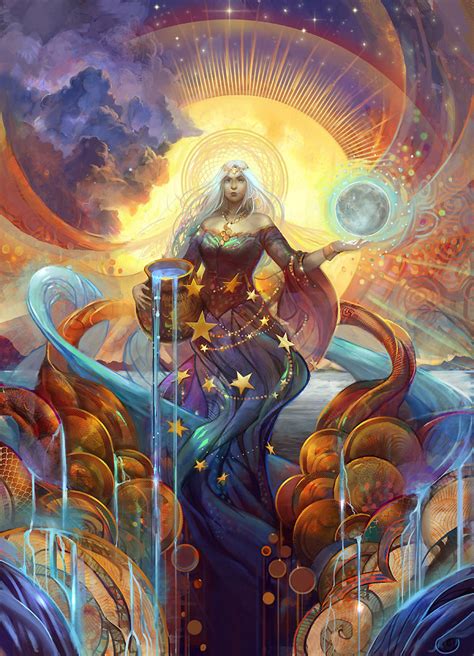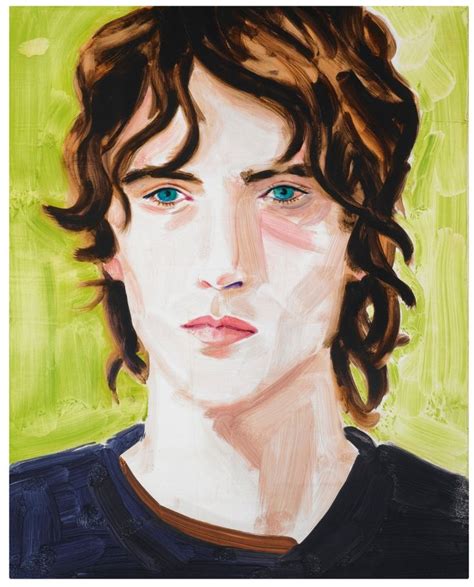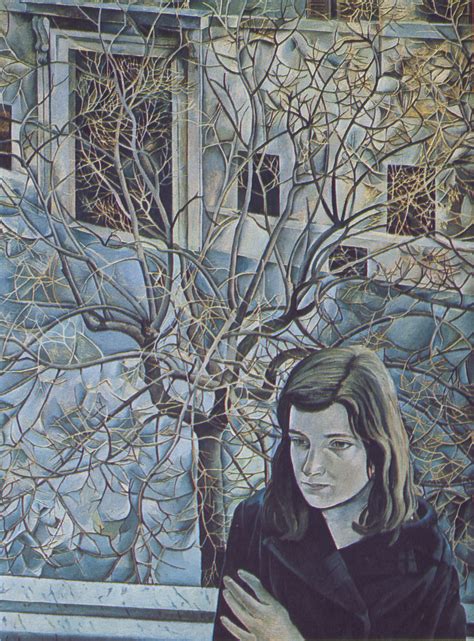A Quote by Michael Leunig
In contemporary art culture, where good looks and clever strategic planning of art careers have become a feature, professional practice may be taught in art schools like a branch of public relations or political science.
Related Quotes
We profess to teach the principles and practice of medicine, or, in other words, the science and art of medicine. Science is knowledge reduced to principles; art is knowledge reduced to practice. The knowing and doing, however, are distinct. ... Your knowledge, therefore, is useless unless you cultivate the art of healing. Unfortunately, the scientific man very often has the least amount of art, and he is totally unsuccessful in practice; and, on the other hand, there may be much art based on an infinitesimal amount of knowledge, and yet it is sufficient to make its cultivator eminent.
The subject of contemporary art should include a political dimension, the distrust contemporary art has towards the existing order. One manifestation of this distrust is the mechanical dichotomization between art's form and its political content; the other is the institutionalizing tendency of anti-institutionalization. We almost never resist ourselves - the part of ourselves that has been institutionalized. We have occupied the word "resistance" and have become its owner, while "resistance" has become our servant. Thus, we own "resistance" and occupy it as a position of power.
What interests me is to paint the kind of antisensitivity that impregnates modern civilization. I think art since Cezanne has become extremely romantic and unrealistic, feeding on art. It is Utopian. It has less and less to do with the world. It looks inward - neo-Zen and all that. Pop Art looks out into the world. It doesn't look like a painting of something, it looks like the thing itself.
I spent much of my college life prepping for other careers, but I was always drawing and painting whenever I had free time. Eventually, thanks to the internet, I started noticing that there were such things as art schools, and professional artists, and people making a living doing a variety of types of art.
art is the most general condition of the Past in the present. ... Perhaps no work of art is art. It can only become art, when it is part of the past. In this normative sense, a 'contemporary' work of art would be a contradiction - except so far as we can, in the present, assimilate the present to the past.
Contemporary art is based on that an artist is supposed to go into art history in the same way as an art historian. When the artist produces something he or she relates to it with the eye of an art historian/critic. I have the feeling that when I am working it is more like working with soap opera or glamour. It is emotional and not art criticism or history of art.
Meditation practice is like piano scales, basketball drills, ballroom dance class. Practice requires discipline; it can be tedious; it is necessary. After you have practiced enough, you become more skilled at the art form itself. You do not practice to become a great scale player or drill champion. You practice to become a musician or athlete. Likewise, one does not practice meditation to become a great meditator. We meditate to wake up and live, to become skilled at the art of living.
What makes art Christian art? Is it simply Christian artists painting biblical subjects like Jeremiah? Or, by attaching a halo, does that suddenly make something Christian art? Must the artist’s subject be religious to be Christian? I don’t think so. There is a certain sense in which art is its own justification. If art is good art, if it is true art, if it is beautiful art, then it is bearing witness to the Author of the good, the true, and the beautiful
There are so many people who have a training in art history; and if you've spent time looking at old art, you become attuned to what art does through materiality and so you begin to look to that in contemporary art as well. And anyway, I do think that matching one's experience with what you're looking at and questioning what you're looking inevitably involves materiality, just like it involves the sense of place.
During my span of life science has become a matter of public concern and the l'art pour l'art standpoint of my youth is now obsolete. Science has become an integral and most important part of our civilization, and scientific work means contributing to its development. Science in our technical age has social, economic, and political functions, and however remote one's own work is from technical application it is a link in the chain of actions and decisions which determine the fate of the human race. I realized this aspect of science in its full impact only after Hiroshima.
Fine art, that exists for itself alone, is art in a final state of impotence. If nobody, including the artist, acknowledges art as a means of knowing the world, then art is relegated to a kind of rumpus room of the mind and the irresponsibility of the artist and the irrelevance of art to actual living becomes part and parcel of the practice of art.
For to be contemporary is not necessarily to be part of any movement, to be included in the official representations of national and international art. History shows that it may well be the opposite. It may be that it is the odd, the personal, the curious, the simply honest, that at this moment, when everyone looks to the extreme and flamboyant, constitutes the most interesting manifestation of the spirit of art.


































